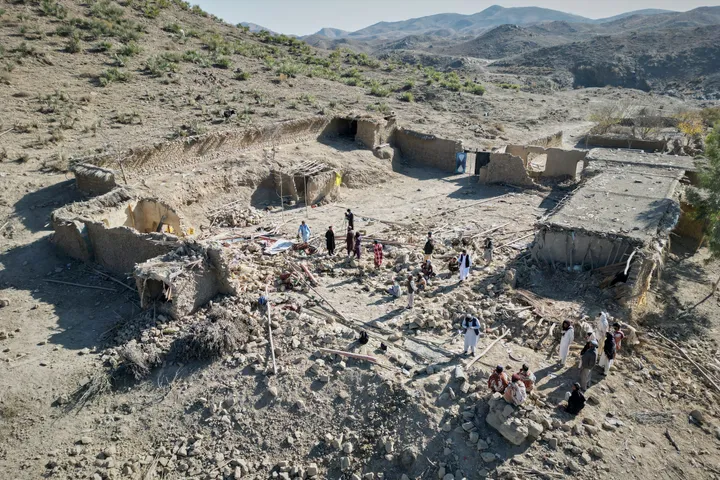Perspectives on the Abraham Accords, which formalised the United Arab Emirates (UAE) and Bahrain’s diplomatic relations with Israel in August/September 2020, have varied throughout the Arab region. Sudan quickly followed suit in announcing its plans to normalise ties with the Jewish state while Egypt, which in 1979 became the first Arab state to establish full-fledged relations with Tel Aviv—praised the Abraham Accords.
Despite never having had formal ties with Israel, Oman and Saudi Arabia also expressed support for their two fellow Gulf Cooperation Council (GCC) members’ normalisation of relations with Israel. Meanwhile, Algeria, Iraq, Kuwait, Qatar, and Syria remain opposed to formalising ties with Israel under current circumstances.
What about non-state actors in the Arab world? This brings us to the question of Yemen’s dominant separatist group in the south, the Southern Transitional Council (STC). Described as the UAE’s “proxy” in Yemen, it was unsurprising how the STC applauded the UAE-Israel diplomatic agreement.
But could the STC be the next actor in the Arabian Peninsula to openly embrace Israeli as a partner? Some analysts think so given the extent to which the organisation is under Abu Dhabi’s strong influence.
One sign may have been the STC’s President Deputy Hani bin Buraik’s reaction to the Abraham Accords, and his words about planning to visit Jewish Yemenis from the south of his country who are currently living in Israel. Buraik also said: “The STC is not hostile towards any country or religion in the world except those who are against south Yemen. We stretch our hands to anyone to establish peace because peace is our ambition.”
However, it would be misguided to read too much into Buraik’s tweet or discussions about the STC being a new friend of Israel. “I think there is little substantive information about an Israel-STC relationship at this stage,” Samuel Ramani, a doctoral researcher at Oxford University told us during an interview.
“As Israel-UAE relations get stronger, it’s possible that the STC could engage with Israel on a tactical basis in the future. But any cooperation would be informal and covert, as the STC establishing formal diplomatic relations with Israel would severely undermine its claims to popular legitimacy.”
Indeed, the STC might have reasons to avoid appearing too close to Israel given how most segments of Yemen’s population view Israel negatively and share pro-Palestinian positions. The anti-Israeli views of the Houthi rebels, as well as officials within Yemen’s Saudi-backed and UN-recognised government, underscore this point.
“Yemenis in general, whether in the north or the south, have negative perceptions of Israel like most of the people in the Arab world,” said Nabeel Nowairah, an independent Yemeni analyst told us. “STC leadership might have political interests to have rapprochement with Israel, but the people would have a different opinion.
Not only would growing cooperation between the STC and Israel add credibility to allegations made by the Houthis about the STC’s purported collusion with the Jewish state, but Salafist extremists too could exploit such a narrative to undermine the UAE-backed group based in Aden.
Extremists in southern Yemen such as Al Qaeda in the Arabian Peninsula (AQAP) have blasted the UAE for signing a diplomatic agreement with Israel and equated the Abraham Accords with the UAE and the STC “selling out” Yemen by allegedly permitting Israel to use Socotra for setting up a military installation and spy facilities.
Without question, the STC taking any steps to signal a more officialised relationship with Tel Aviv could fuel a backlash against the UAE-backed group at a time in which it has resumed its fighting against forces loyal to President Abdrabbuh Mansur Hadi.
Nonetheless, besides the fact that the STC is largely under the UAE’s control, there are other reasons to consider why the separatist group may want to embrace Israel albeit in quiet and discreet ways. If the STC establishes South Yemen as an independent state (which it was from 1967-1990), it will seek partners and friends which have shared perspectives on the group’s adversaries such as the Houthis, Iran, the Muslim Brotherhood, and Turkey—all actors which Israel sees as a threat.
Buraik, who is more boisterous than the rest of STC leadership, has praised Israeli Prime Minister Benjamin Netanyahu on Twitter. He has also criticised Palestinian opponents of the UAE-Israel diplomatic deal. In some cases, this STC leader has tweeted that Turkey, Iran, Hamas, and the Muslim Brotherhood have hijacked the Palestinian movement.
Regardless of speculation about the STC and Israel forming a partnership quietly, it is true that Yemen will matter to the Emirati-Israeli relationship. The future trajectory of Yemen’s crisis will likely keep the UAE and Israel in the same boat on many issues that pertain to the maritime security in and around the Horn of Africa, Gulf of Aden, and Red Sea.
“Any Israeli footprint in Yemen via the UAE would involve the STC one way or the other,” Andreas Krieg, a professor at King’s College in London told us. “There have been talks about a potential Israeli intelligence cell being dispatched to Socotra Island, which is still premature at this stage, but could be something that Israel is interested in long-term.”
Ultimately, it is difficult to imagine a full-fledged relationship between the STC and Israel due to many factors such as the lack of certainty regarding the southern separatist group’s future in Yemen, the fact that it (at least for now) remains a non-state actor that has little legitimacy in the eyes of the international community, and Yemeni public opinion on the Palestinian question. That said, the idea of the STC and Tel Aviv establishing a more tacit and low-profile partnership down the road cannot be ruled out.
As the STC and forces loyal to Hadi’s government continue fighting, the possibility of Israel seeing the Abu Dhabi-sponsored organisation as a force to work with in southern Yemen and, by extension, the Horn of Africa, Gulf of Aden and Red Sea is real.
At the end of the day, it is difficult to know what it is fact versus rumour. With many actors in Yemen seeking to push narratives about a supposed STC-Israel relationship for self-serving reasons, the picture is anything but clear.
Nonetheless, analysts will likely be busy for the foreseeable future trying to make sense of the (real and perceived) interactions between the UAE’s “proxy” in Aden and Israel, especially as the Jewish state remains concerned about Houthi power and Iranian influence in Yemen while likely seeking to work with its GCC friends to advance common interests in the war-torn Arabian country.























